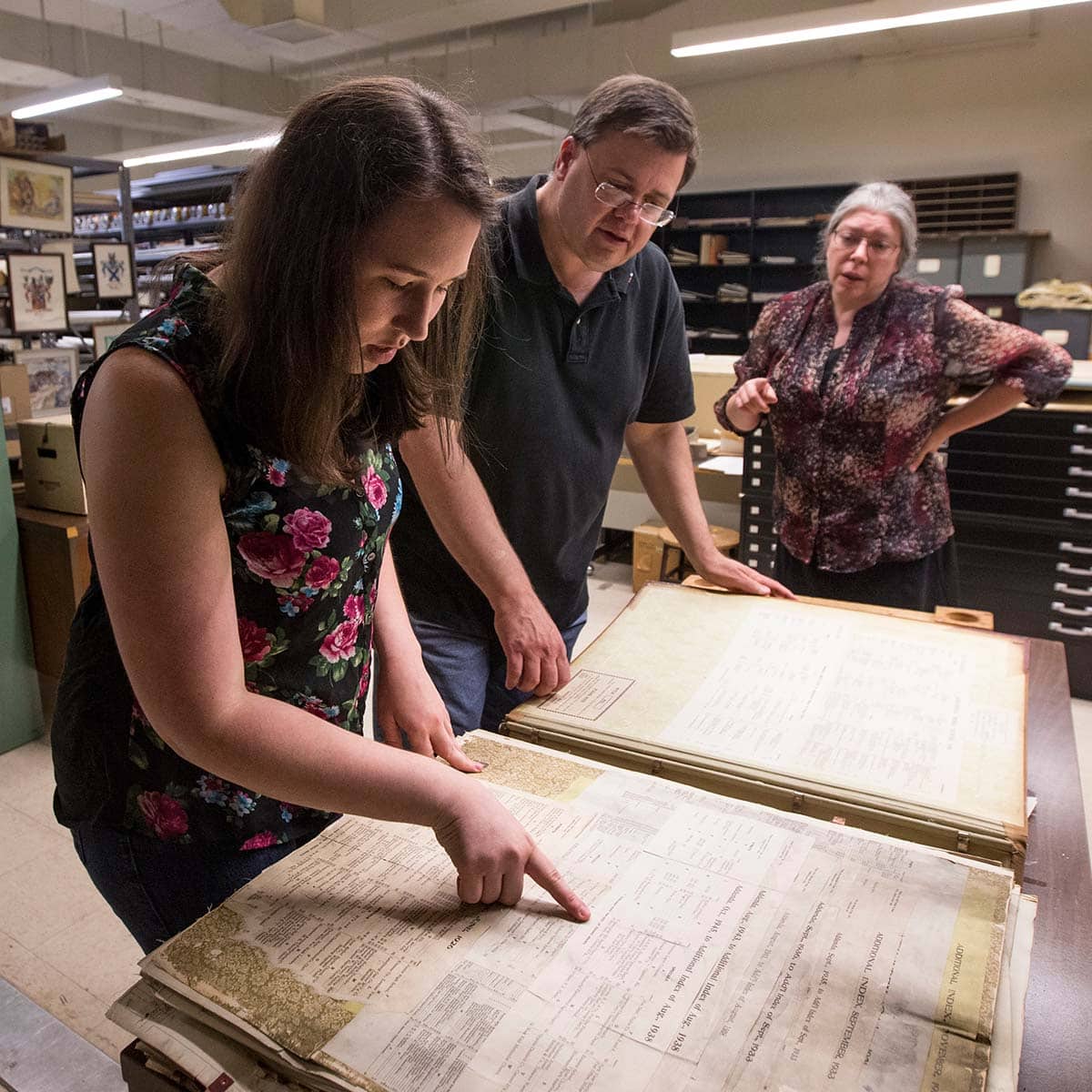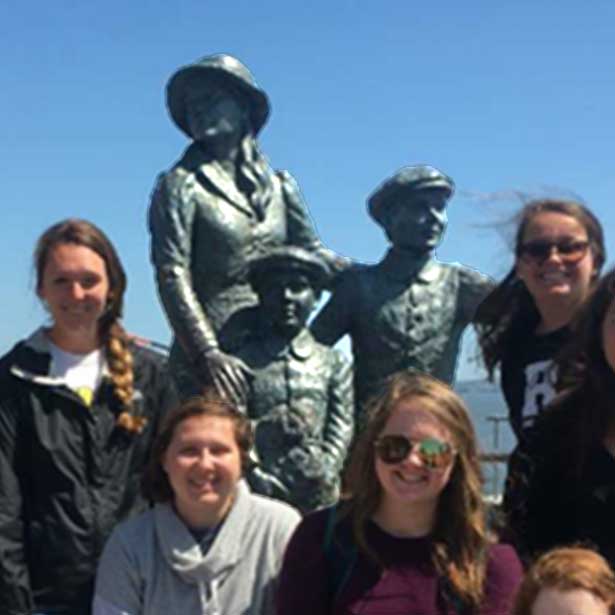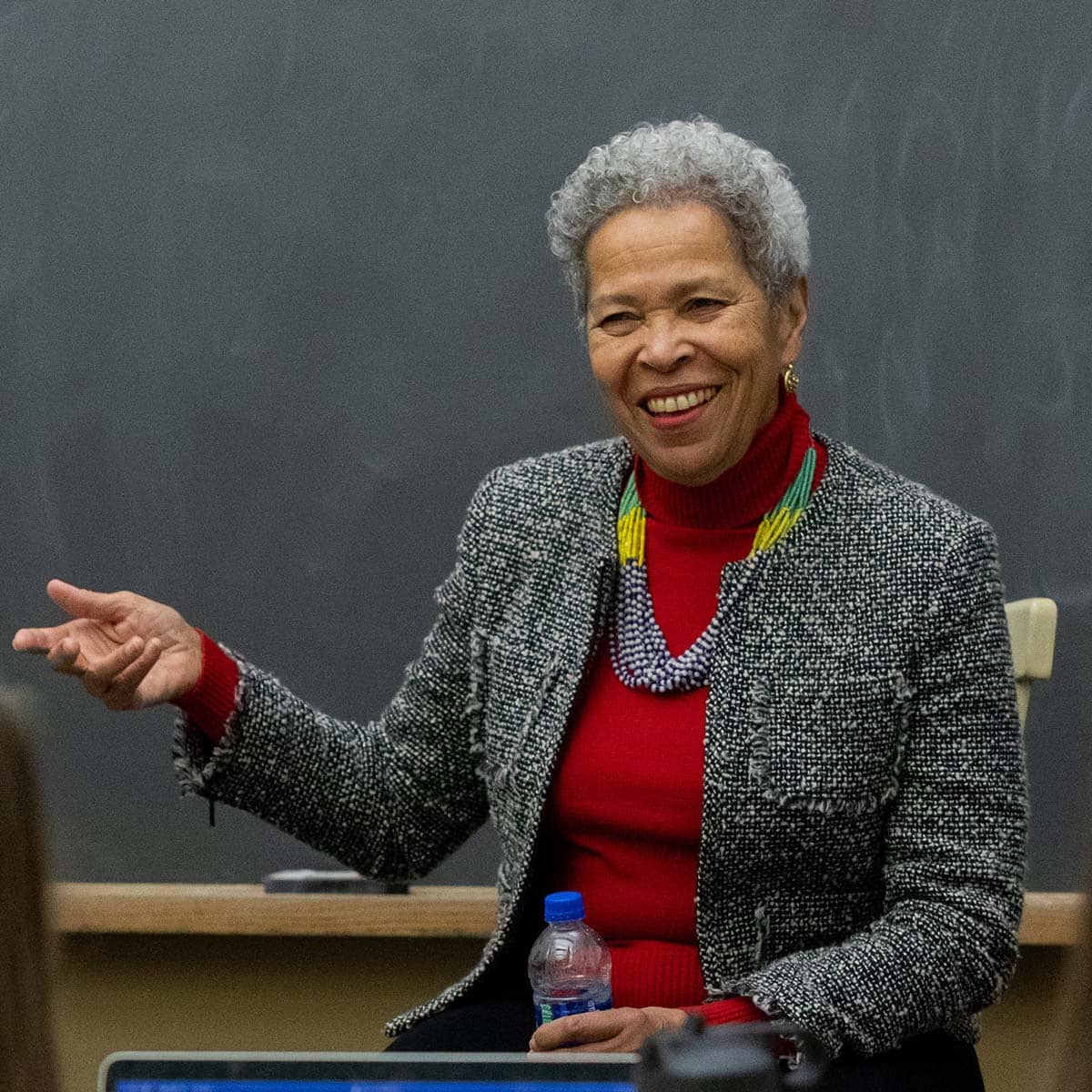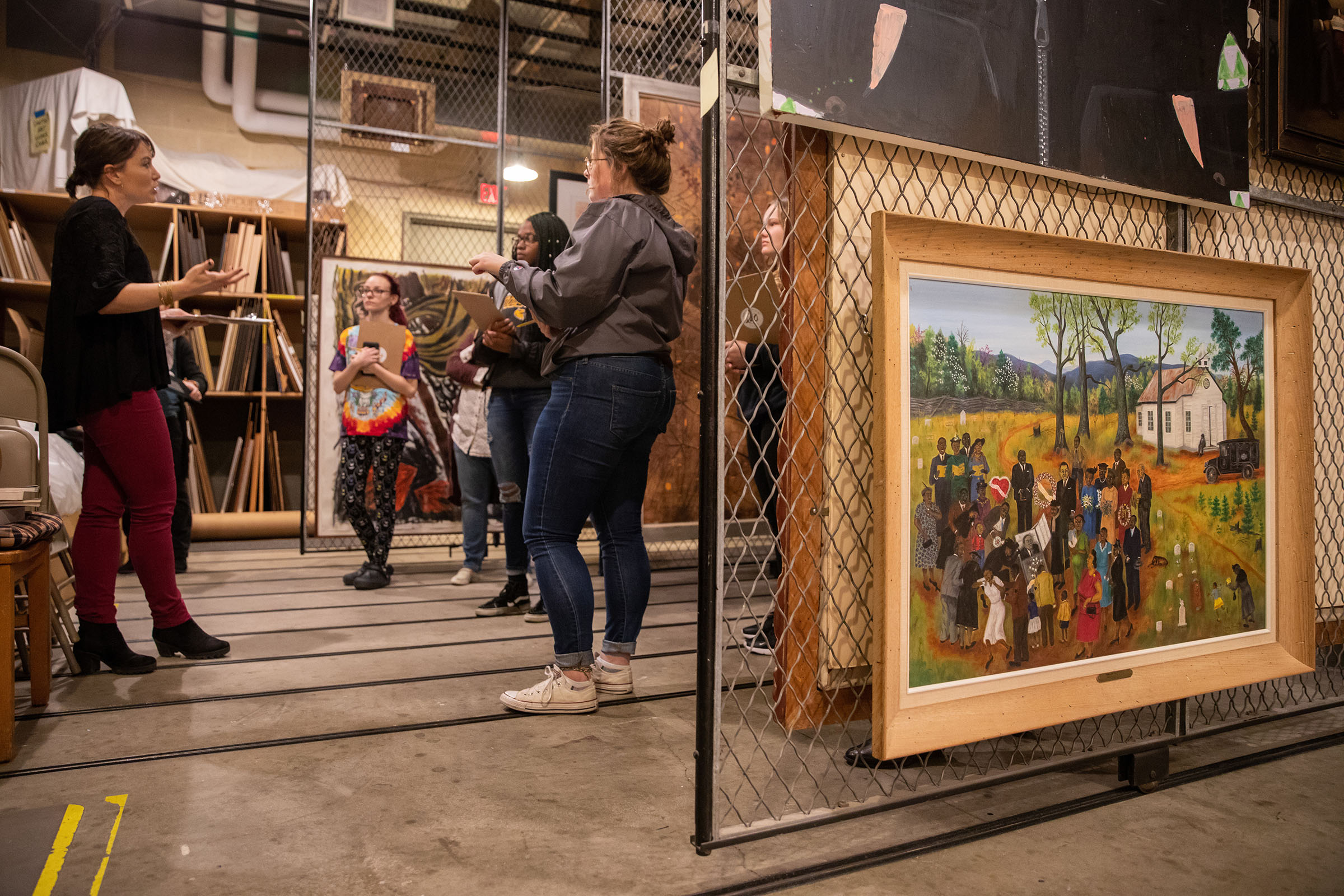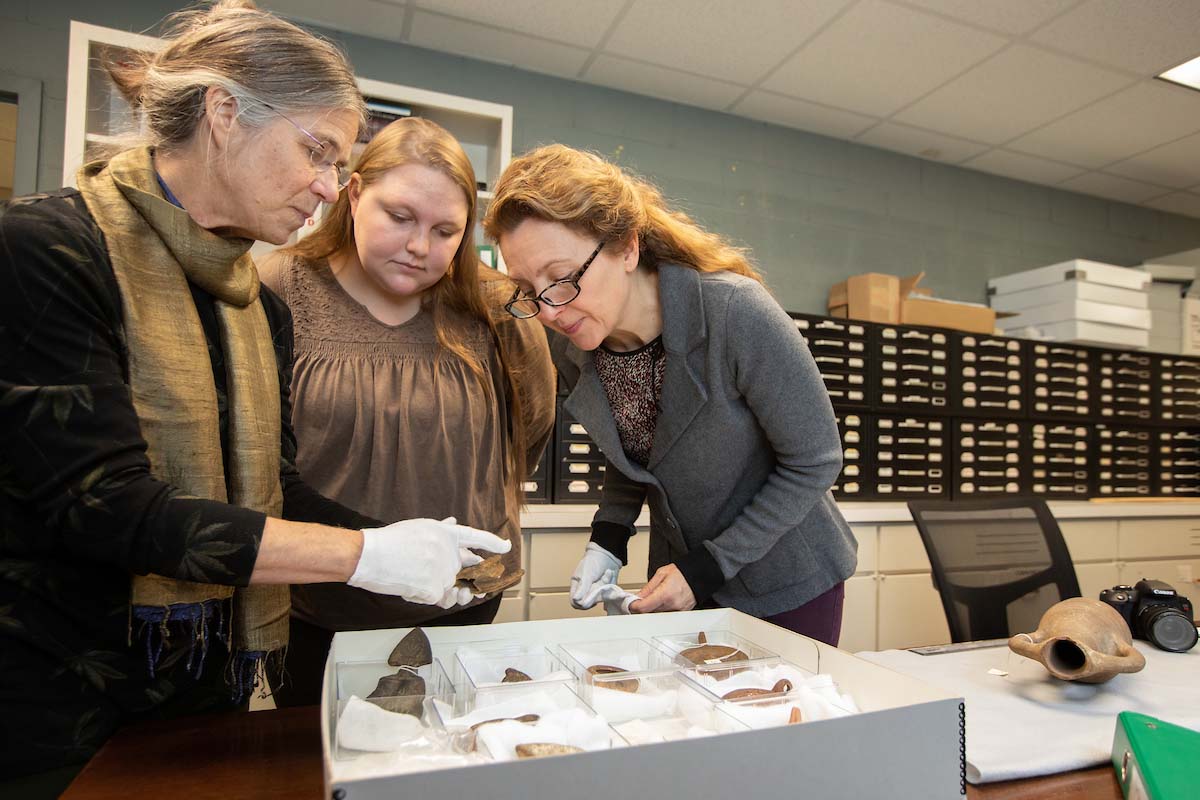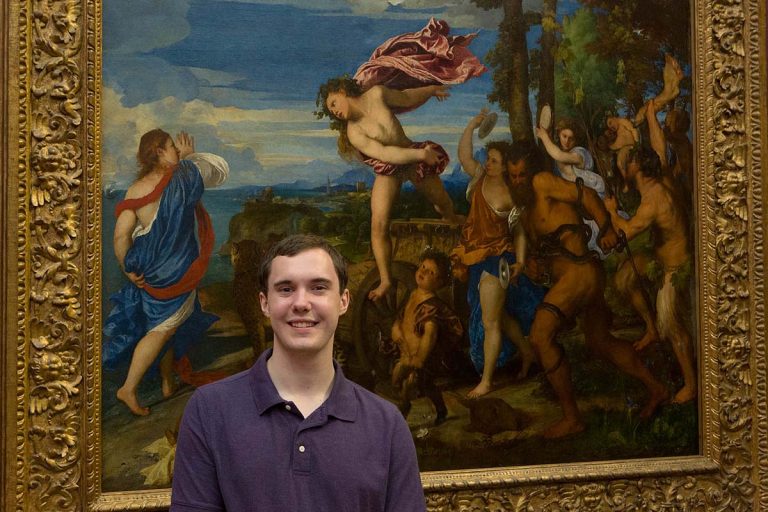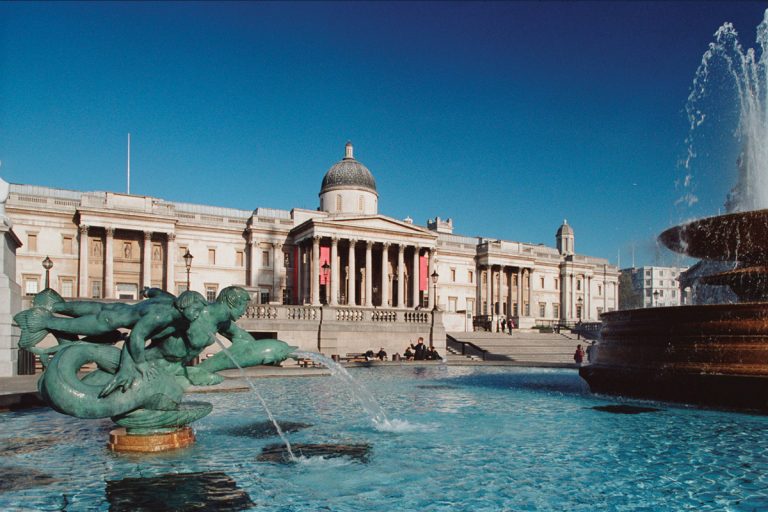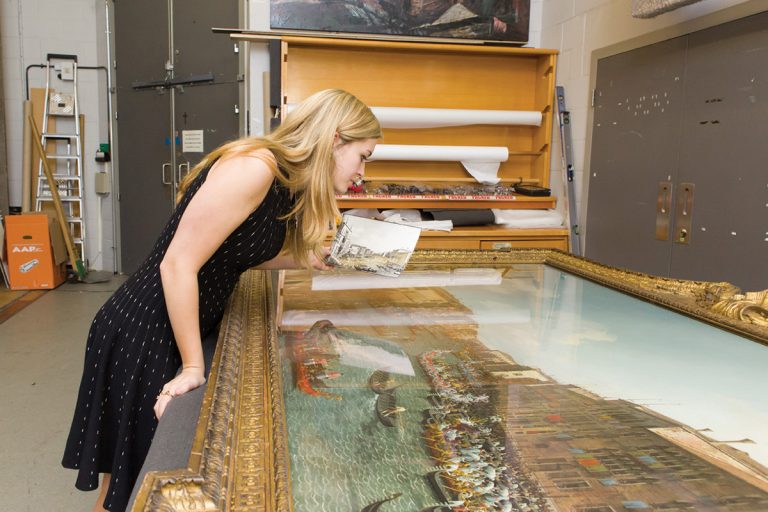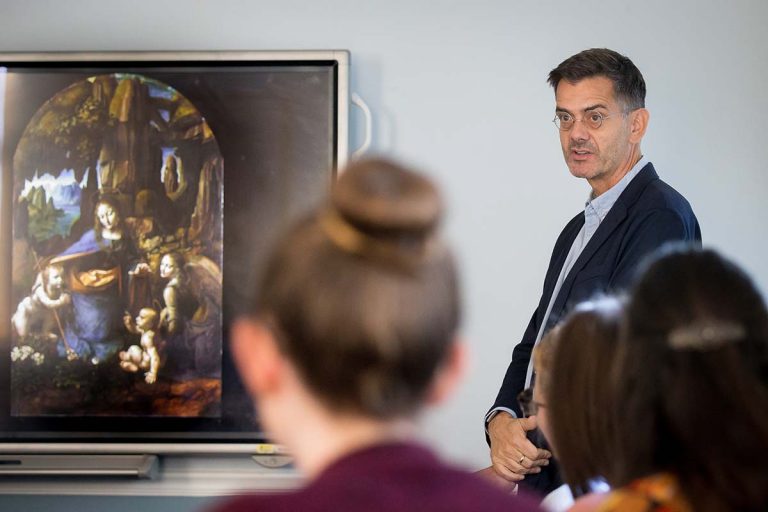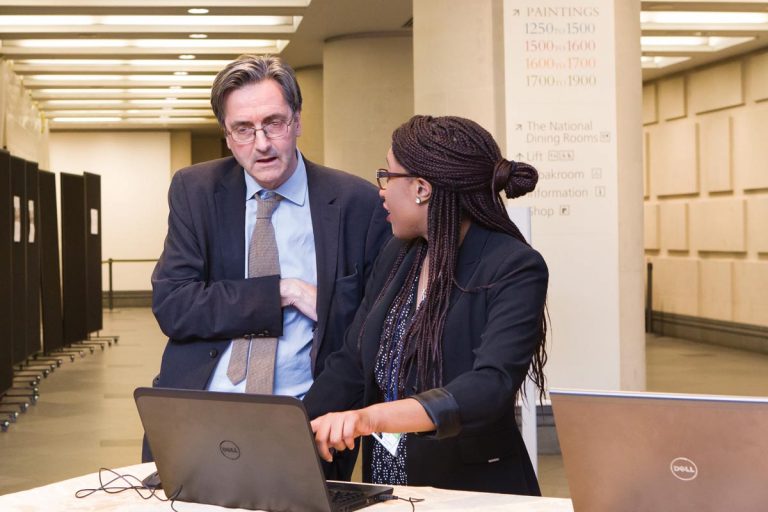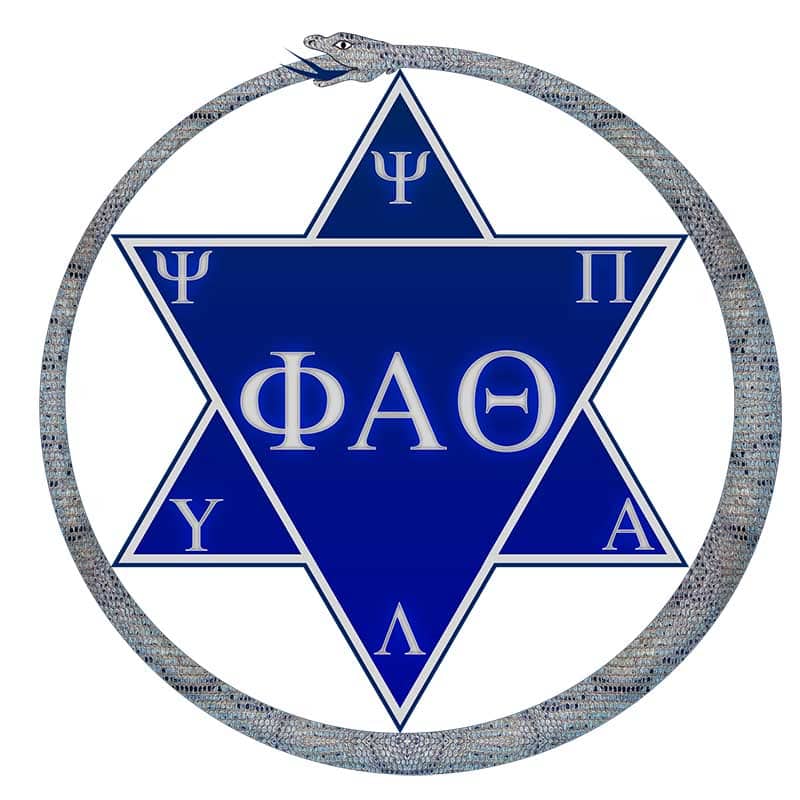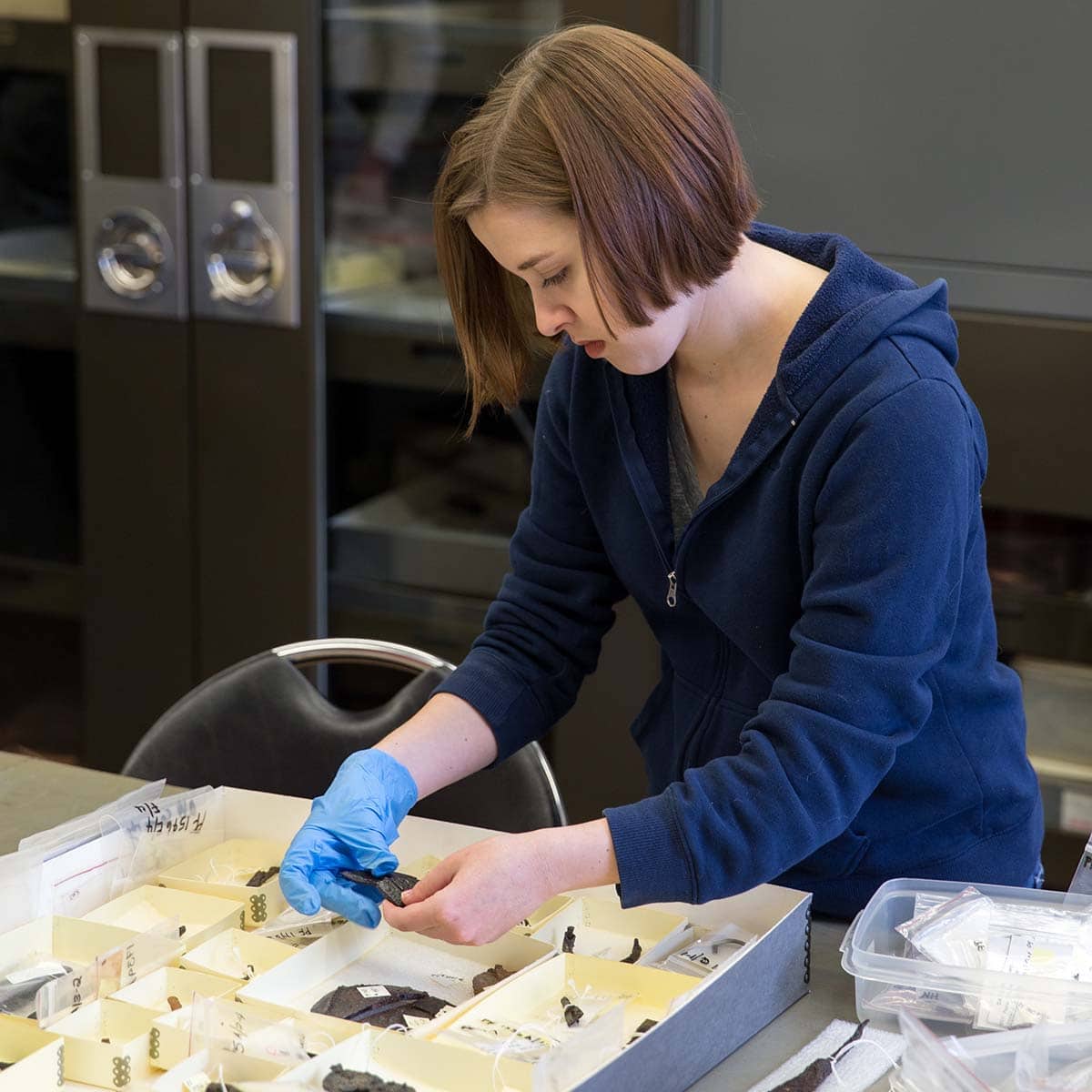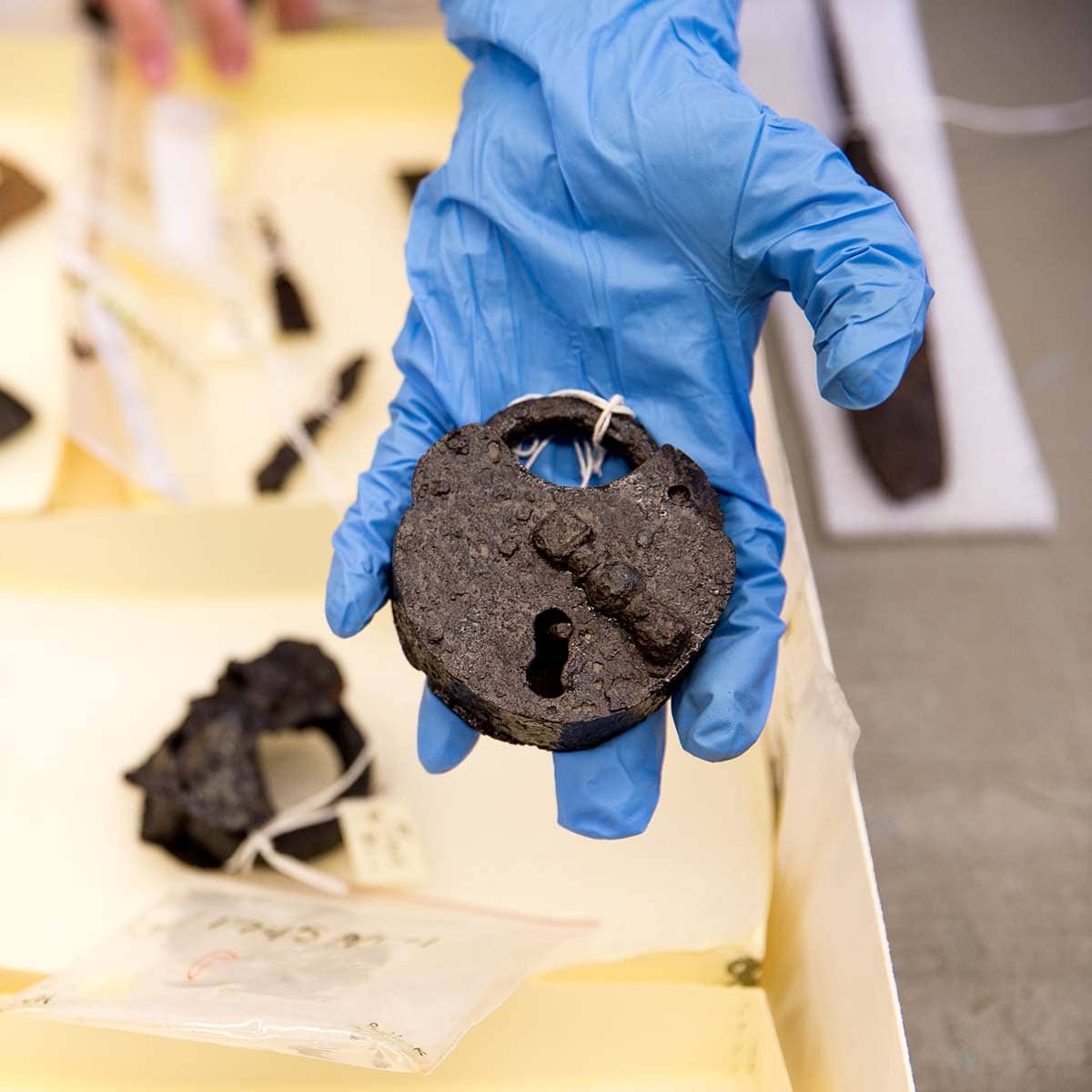Museum and Heritage Studies
Our unique interdisciplinary program is based on hands-on experiences and direct work with collections.
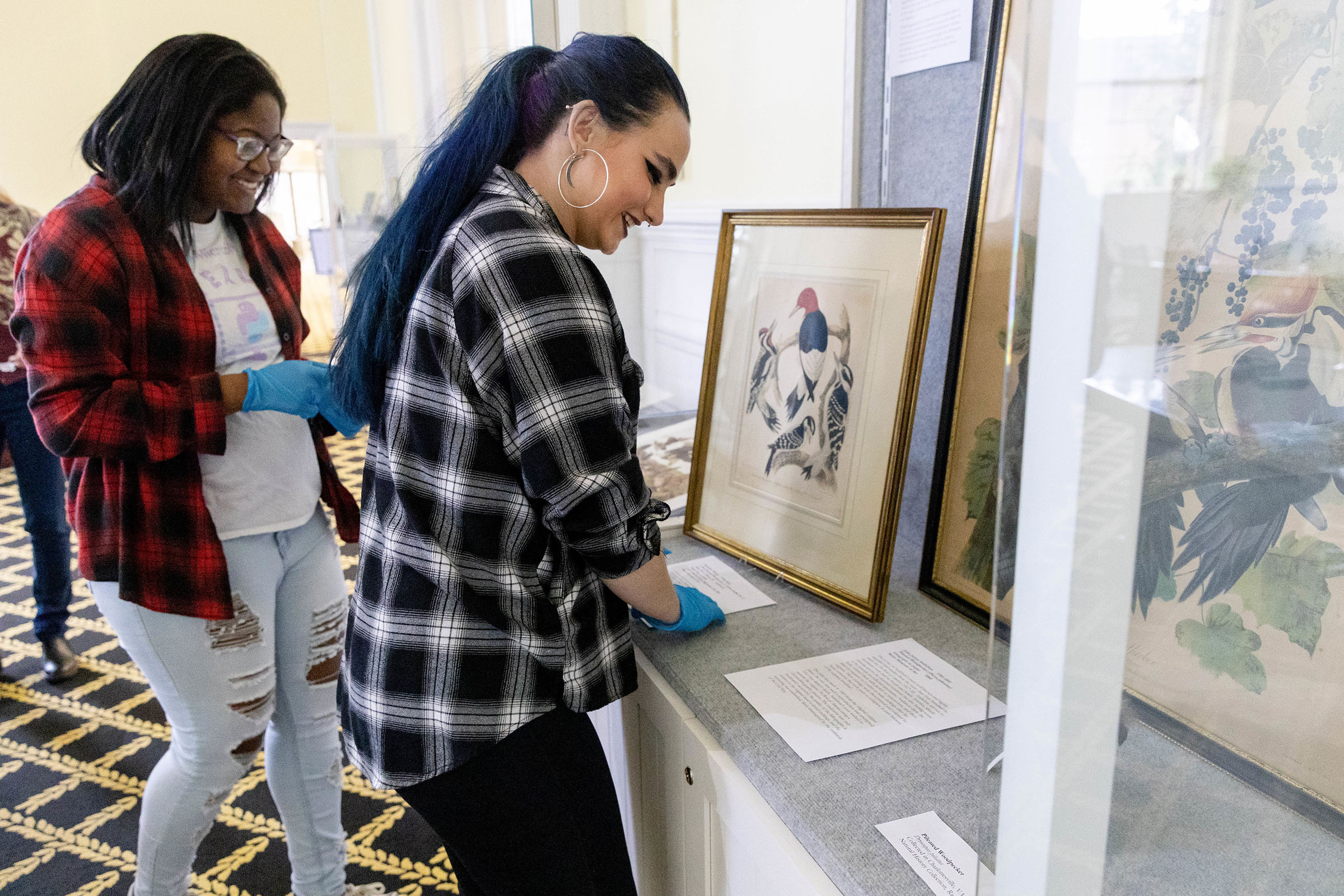
Why Museum and Heritage Studies at Randolph?
Students develop practical skills in this unique, interdisciplinary pre-professional major centered on hands-on experiences and direct work with collections.
Based on Randolph College’s world-class Maier Museum of Art and the College’s notable natural history, archaeology, and ancient collections, students learn fresh perspectives about the role of museums and public history sites.
The Center for Career Development connects students to internships and fieldwork with professional organizations in the US and abroad, including the Preservation Institute Nantucket and the Archaeological Conservation Institute (Italy).
Graduates emerge equipped with the knowledge and experience for careers in interpreting and presenting visual and material culture.
Degrees offered
Bachelor of Arts Degree in Museum and Heritage Studies
Minor in Museum and Heritage Studies
Related Programs
Art History
History
Classical Studies
The Maier Museum of Art at Randolph College
Randolph College’s nationally recognized Maier Museum of Art features works by outstanding American artists of the 19th, 20th and 21st centuries. The College has been collecting American art since 1920 and now holds a collection of several thousand paintings, prints, drawings, and photographs. The Maier’s permanent collection tells the story of the development of American Art and the intrinsically connected growth of America’s expansion and history.
An annual exhibition of contemporary art, known as “The Annual,” continues the narrative with a focus on the art and issues of our time. Established in 1911, it the is longest running exhibition of contemporary art presented at an academic institution in the United States.
The Maier hosts an active schedule of special exhibitions, visiting artists and scholars, and education programs throughout the year. Through its programs, internships, museum studies practicums, and class visits, the Maier Museum of Art provides valuable learning opportunities for Randolph students and our community at large.
The Randolph College Natural History and Archaeology Collections
The Randolph College Natural History and Archaeology Collections, established in 1895, contain hundreds of zoological specimens including birds, mammals, fishes, reptiles, insects, marine invertebrates, and fossils. The collections boast an excellent herbarium containing thousands of specimens of plants indigenous or introduced to the eastern United States, specifically Central Virginia. Also notable is the large geology collection, featuring thousands of rock and mineral samples from around the world. The archaeological collections contain artifacts and remains from local and classical Mediterranean sites.
Through classwork, internship, and volunteer opportunities, the Natural History and Archaeology Collections offer a cross-disciplinary approach to developing crucial skills of observation and methodology in the research of natural sciences.
The National Gallery, London
A One of a Kind Partnership
Randolph is the only college or university in the United States that offers an internship at the National Gallery of Art, London.
Two students spend eight weeks of the summer learning museum work at one of the world’s greatest painting collections.
The partnership also brings high-level staff members of the National Gallery to campus for lectures and master classes with Randolph students.
Learn more about the National Gallery, London internship program.
Internships
In addition to the hands-on learning students regularly experience at the Maier Museum of Art and with the Randolph College natural history, archaeology, and ancient collections, majors are required to complete at least two internships.
Randolph College’s impressive range of internships and fieldwork with professional organizations in the U.S. and abroad give students access to exceptional resources for research and career exploration.
Students take advantage of architectural preservation institutes, archaeological field schools, public history internships, curatorial and museum education internships, both around the country and in local archives, collections, and museums, such as Thomas Jefferson’s Poplar Forest.
Scholarship
The Museum and Heritage Studies program at Randolph College equips students with the knowledge and experience needed for careers working with museums, collections, or public history sites.
This scholarship awards $1,000 annually to recipients in their first two years. If a MUHS major is declared, the scholarship is increased to $2,000 annually in the third and fourth year.
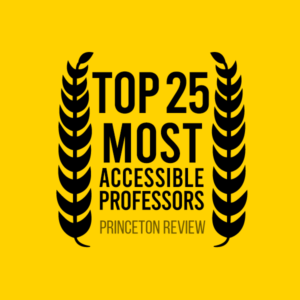
Top Ranked Professors
Randolph College’s faculty are consistently recognized as among the best in the nation. The Princeton Review ranked the College in the Top 25 for most accessible professors in the most recent edition of its flagship college guide, The Best 389 Colleges.
Randolph has been ranked in the top 25 for most accessible professors for more than a decade.
Museum and Heritage Studies Faculty
Laura McManus
Curator of Education, Maier Museum of Art at Randolph College
Read More... Laura McManusLaura McManus
Curator of Education, Maier Museum of Art at Randolph College
Read More... Laura McManusDepartment News
But does it glow? Students investigating biofluorescence in mammals
Biofluorescence occurs when light is absorbed by a molecule found within the skin or fur of an animal and then emitted as light of a different frequency or color, usually green, orange, blue, or red.
Read MoreRandolph student takes advantage of opportunities for hands-on experience in the art field
Elizabeth Bailey '25 got a taste of independent research over winter break when she visited the United Kingdom to research the life of Welsh artist Gwen John for her senior project.
Read MoreNomadic Art: Ann Holsberry ’65 returns to alma mater for exhibition of art
Museum and heritage studies students joined Holsberry and Maier staff to help hang the exhibit and create a site-specific installation, on view through June 1.
Read MoreBut does it glow? Students investigating biofluorescence in mammals
Biofluorescence occurs when light is absorbed by a molecule found within the skin or fur of an animal and then emitted as light of a different frequency or color, usually green, orange, blue, or red.
Read MoreRandolph student takes advantage of opportunities for hands-on experience in the art field
Elizabeth Bailey '25 got a taste of independent research over winter break when she visited the United Kingdom to research the life of Welsh artist Gwen John for her senior project.
Read MoreNomadic Art: Ann Holsberry ’65 returns to alma mater for exhibition of art
Museum and heritage studies students joined Holsberry and Maier staff to help hang the exhibit and create a site-specific installation, on view through June 1.
Read MoreOnly at Randolph
Randolph students can take advantage of unique programs which give them a more enriching education than can be found anywhere else.
Two courses per half-mester means you get to focus in and dig deep into your coursework while still having time for the rest of the college experience. Two classes. Seven weeks. Repeat.
The Randolph Innovative Student Experience (RISE) program provides every student a $2,000 grant to fund research, creative work, experiential learning or other scholarly pursuits.
Randolph graduates learn to think critically, solve problems and work well with others. They are prepared to succeed in all aspects of life.
Randolph students work with faculty mentors to explore a broad range of disciplines as they chart their academic path.
